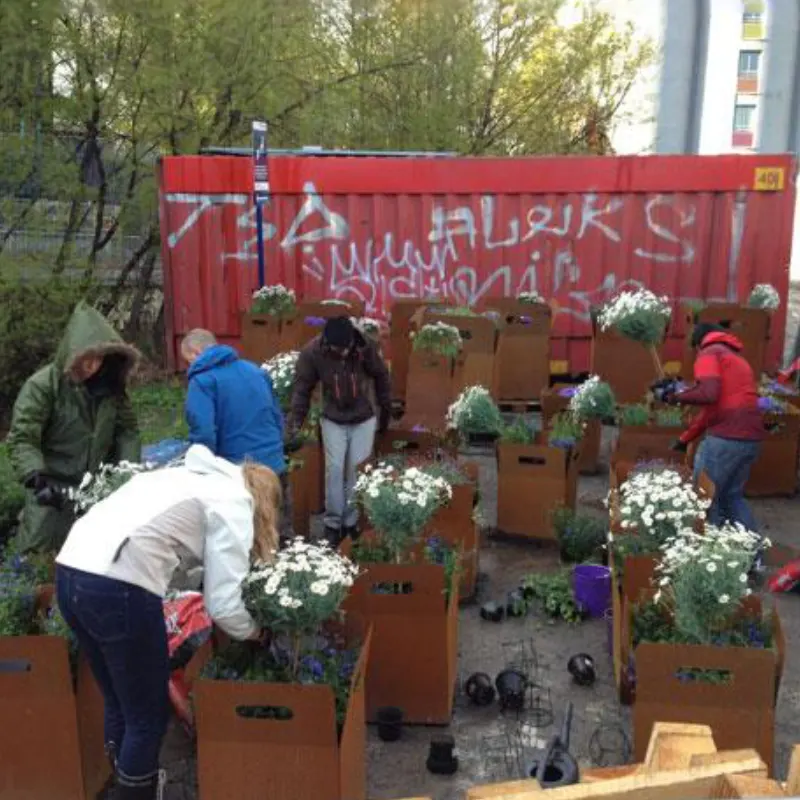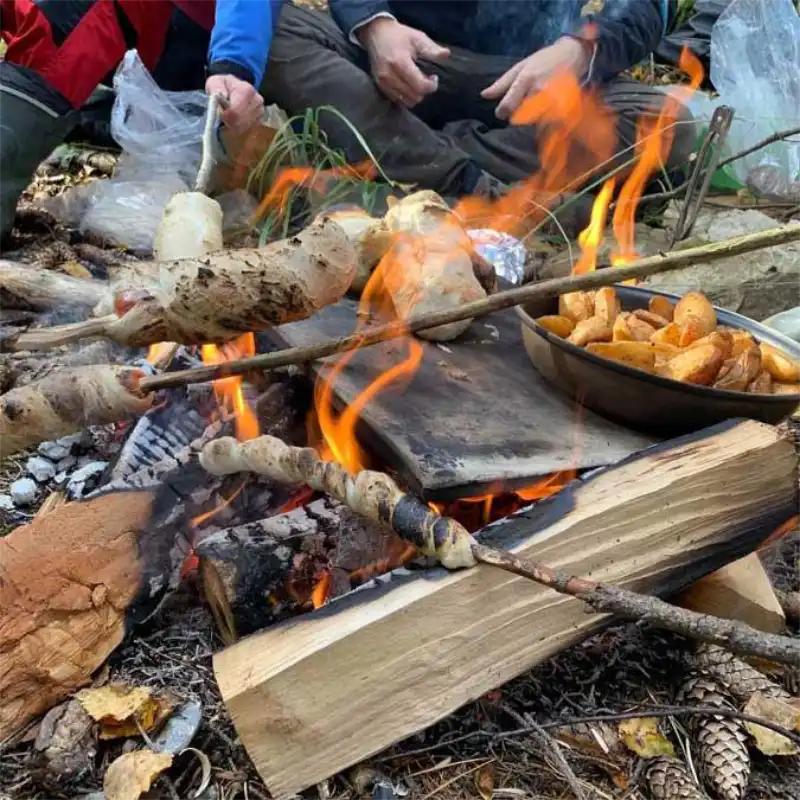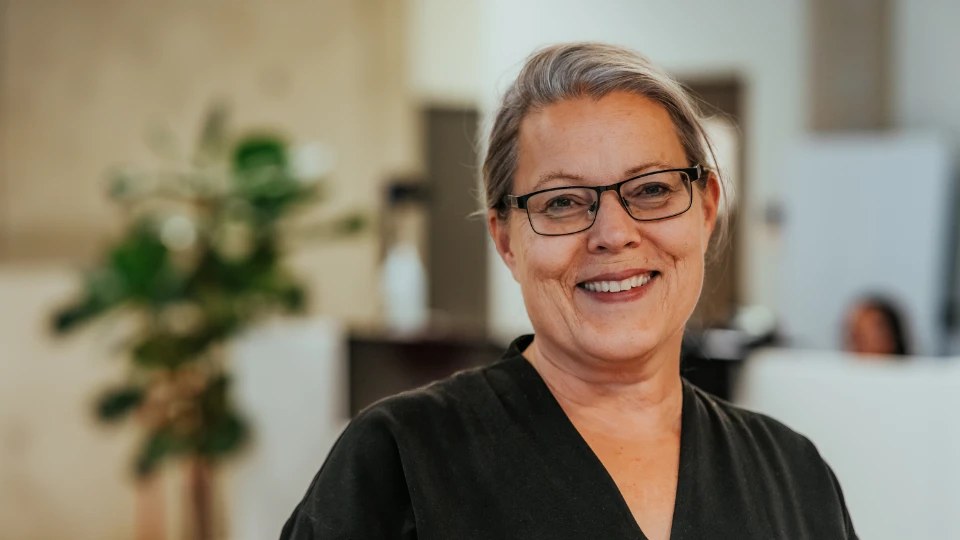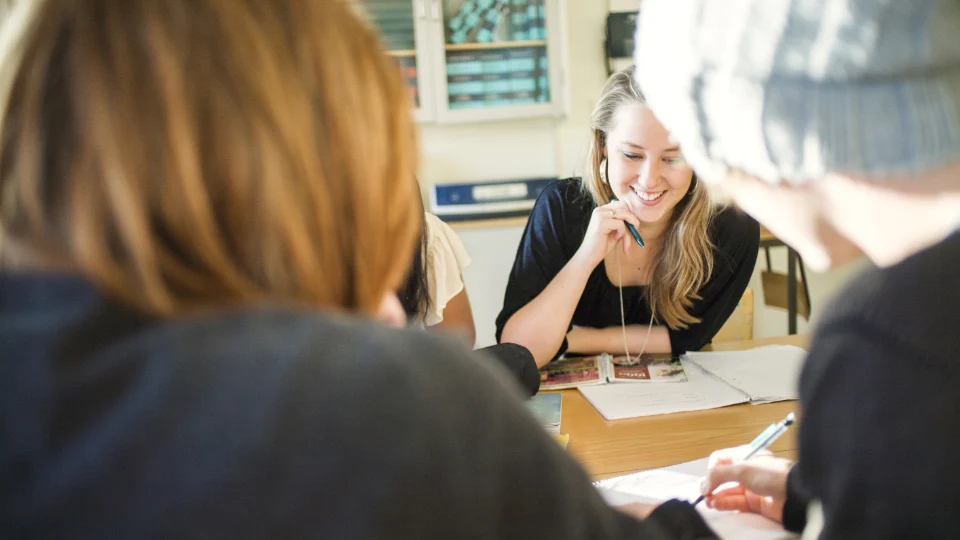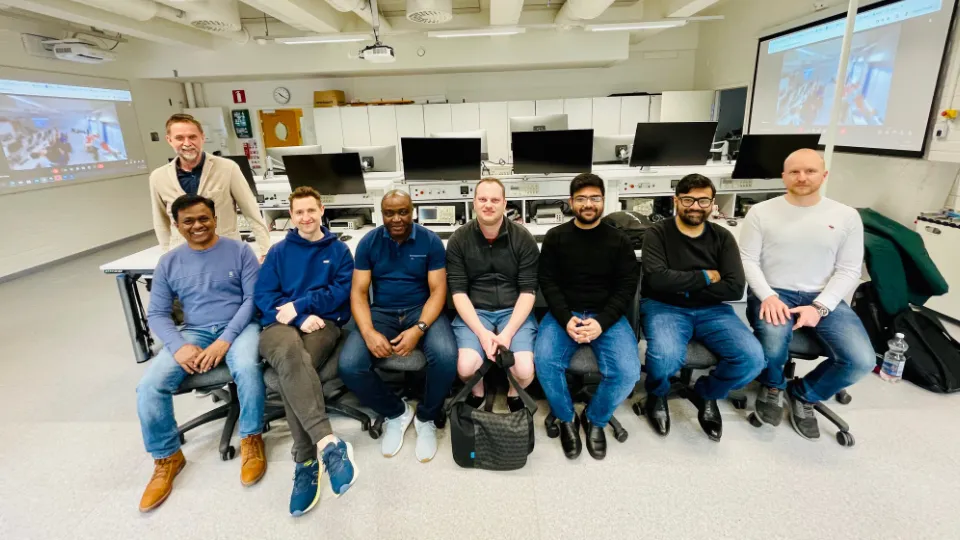Consumption and foodwaste leads to climate emissions. Within 11 years the social enterprise ”Kompass & Co” employed over 100 youth, retrieved 60 000 kilos of surplus food, delivered catering to more than 35 businesses, established five local organic gardens and developed seven social meeting places.
Background – Description of the work
Research shows that 5 to 10 % of youth in the Nordic countries is neither in any educational program, employed nor in programs for work training. Every third youth in Norway are school dropouts and do not complete high school. Youth in this situation have expressed that they feel useless. How to change this situation and combine it with efforts to create green jobs and social arenas for wellbeing and empowerment, while at the same time taking care of the environment and contribute to reducing climate emission? This ambitious question was the driving force behind the establishment of the social enterprise” Kompass & Co” in 2011
The four women that initiated this enterprise had in different ways been working with youth in municipal welfare services for children, in schools and the Norwegian Labor and Welfare Administration, (NAV). Some also had a background in the creative arts, business development, marketing, designing and facilitation.
As a social enterprise” Kompass & Co” base their work on the philosophy that all human beings have the capacity to find a solution to make changes in their own life situation. The approach is to meet the young people where they live their daily life. Through the Youth Program and projects linked to that, they develop arenas for mastering through individually tailored tasks. They assist the youth in finding their own” life-compass” – for this reason, the name of the enterprise.

It is said that” it takes a village to raise a child” – a solid social network is of great importance. For this reason, when ”Kompass & Co” starts to work with the youth they allocate time and efforts to build a secure and stable network around each youth. This network consists of different people that can contribute with different knowledge and experiences in the different stages of the empowering and mastering process.
”Kompass & Co” describes the youth program as a three-step model. The goal and focus of this model are employment in form of paid work, strengthened self-esteem and inner motivation. The result is also a better CV and contacts in work life. In order to reach to these results, the enterprise has a multitude of partners both in the public and private sector, and in addition to that, they work closely with other social enterprises and NGOs.
In the Youth Program the focus is on the three following areas with reference to the global sustainability goals:
- Kompass Food – projects based on surplus-food, pointing at the problem with food waste
- Redesign – old things that might look like rubbish can get new life.
- Ecological and short traveled agriculture.
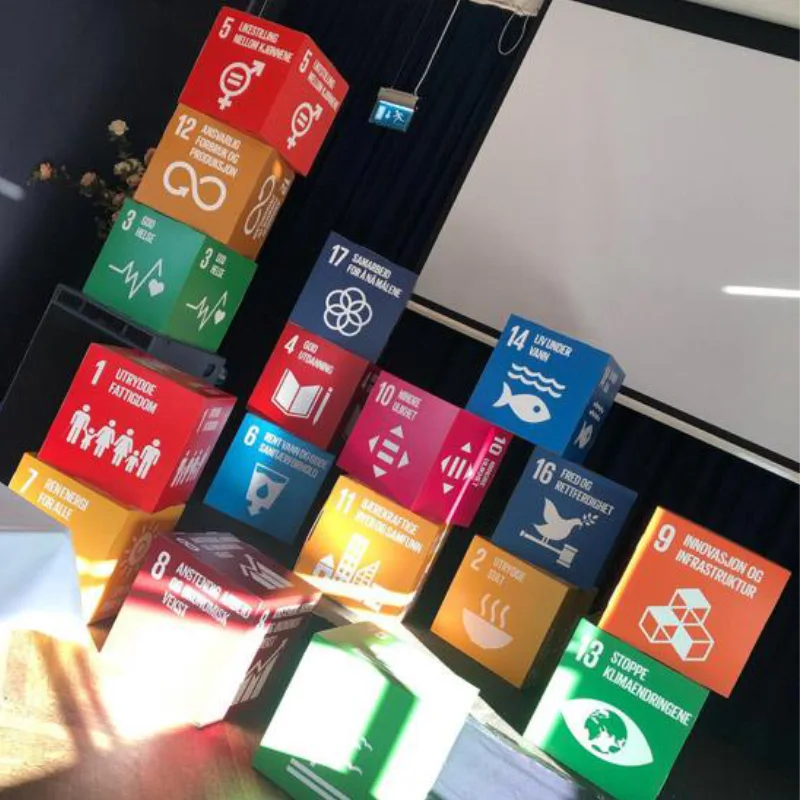
Kompass-food” – Catering and educational programs for raising awareness
In order to be a part of the solution to complex global issues ”Kompass & Co” started the food project in 2017. On the average, each Norwegian wastes 42,6 kilos of food each year. This leads to 1,35 billions of ton CO2 equivalents, which is 2 % of Norway´s carbon footprint. To compare, research from the Norwegian NGO ”Future in our Hands” shows that if we reduced waste of food to zero it would be the same as removing 400 000 cars from the Norwegian roads.
The activities in the” surplus-food-program” include collecting surplus food from food shops and restaurants, catering, selling of street-food from their own food truck and organizing educational programs and courses. Each week between 150 and 200 kilos of surplus food is collected. It is both food that never reaches shops for different reasons and it is food that has expired. Some of the surplus food is included as part of the dishes offered in the” Kompass-Catering Menue”, other parts are distributed to different institutions that work with people living in poverty and others.
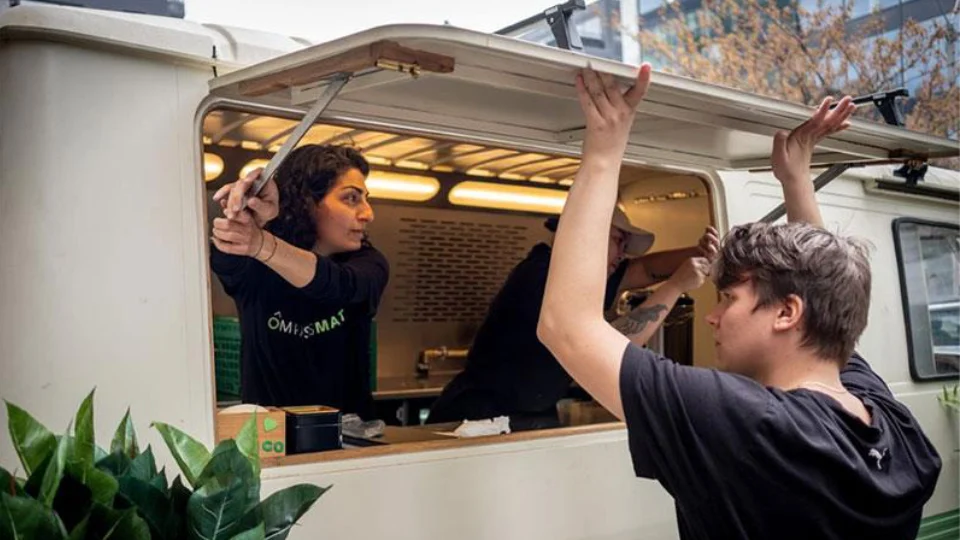
The food-truck is an old Peugeot from 1967 that has been restored by the young people as job training and in cooperation with professional partners. It is equipped with a refrigerator, workbenches and plenty of shelf space.
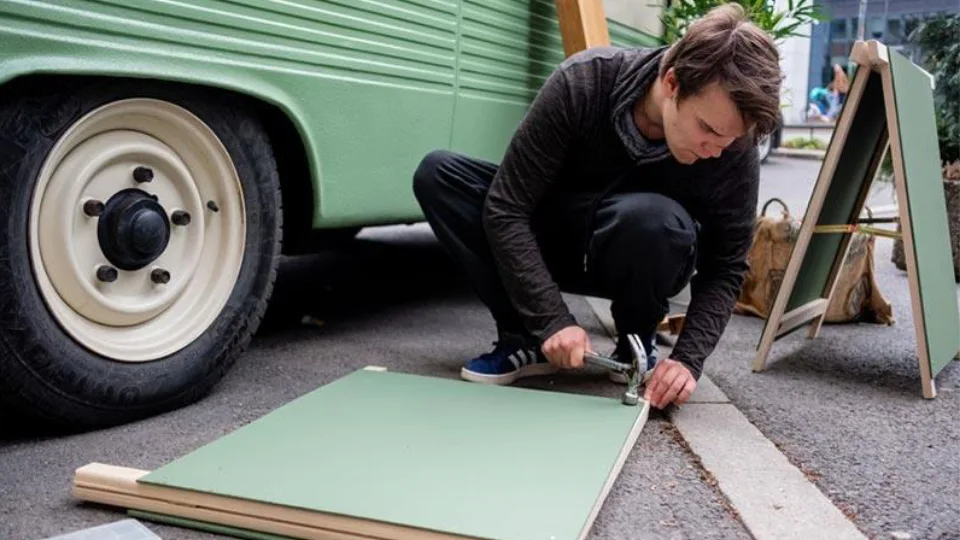
Related to this activity” Kompass & Co” organizes courses for other citizen consumers where others can learn more about how to make delicious cooking out of surplus food and how to use all parts of foods. And not the least through these courses they contribute to raising awareness about the carbon footprint related to waste of food.
Today they also run a canteen at one of the secondary schools in Oslo.
Redesign projects
On the average each Norwegian throws away 65 kilos of furniture each year, many of these still useable. Research shows that reuse as business principle might reduce 90 % of the climate and environmental footprint in the furniture industry. The Norwegian research institute SINTEFF in of their studies shows that investing in circular economy can create tens of thousands of new jobs in Norway until 2030. When it comes to clothes on average each Norwegian has 359 garments in their wardrobe; every fifth of these is never used, approximately 23 kilos of clothes annually end their life as so called rubbish. The clothing industry, globally, accounts for 8 – 10% of the Co2 emissions.
The redesign and upcycle concept as an arena for mastering job creation in “Kompass & Co” is comprised of the reuse and redesign of furniture and clothes. As a follow up the young people also contribute to different cultural and public events, they rent out furniture, eatable plants and decor based on the principle of redesign focusing on the triple-bottom line.
In the process of developing this niche they have involved professional clothing designers, cabinetmakers and upholsterers. They were supported with upholstery fabric in wool from” Gudbrandsdalen Wool Goods Factory” and from the painting room in the Norwegian Public TV Channel (NRK), they were given remnants of wood and cloth.
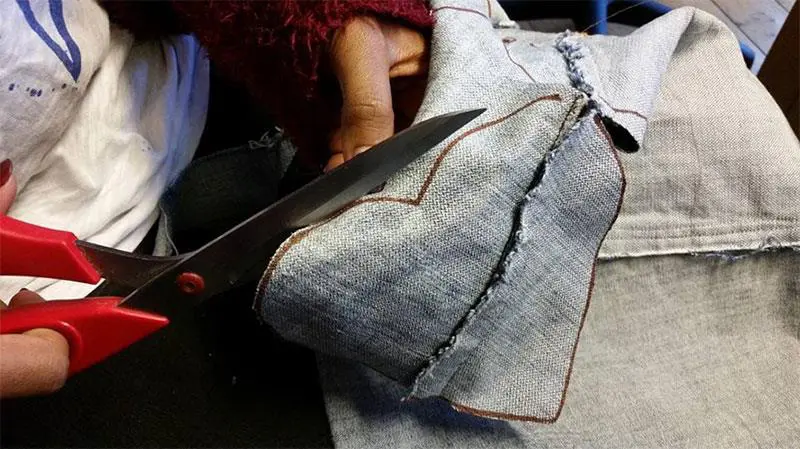
Ecological agriculture – local gardens
Through the years “Kompass & Co” also has developed different kinds of gardening services. Together with another NGO they started a roof garden on the top of a local shopping center owned by the real estate developer, Aspelin Ramm. Followed by that experience they got a contract with the same developer regarding the establishing and maintenance of the outdoor areas in Vulkan, a new developed location for culture and food established in one of Oslo`s former industrial areas.
In addition to locally grown organic food the aim of the green roof project was and is related to the rising awareness of the importance of green roofs when it comes to surface water management.
Experiences others can learn from
One of the founders, Sherry Hakimnejad tells that two of the important factors of success are patience and time. At its beginning, this social enterprise became a ”steep learning curve”. “We considered the young people as our compass”, she says. In the beginning Sherry did what she calls ”informal socio-anthropological” studies through outreach work. She and her colleagues listened to life stories that testified vulnerability and exclusion. It was definitely not easy in the beginning when they experienced a lot of resistance from the young people and that some of them did not show up on time, they did not want to do parts of the job, they hid in the toilet with their mobile phone though it had to be handed in at the beginning of the workday. Sherry and her colleagues realized and learned that they needed a flexible business model. An important part of the job has been to orient the young people towards reality of work life while at the same time make the employers and partners to understand the life conditions of the youth and to see that these often stigmatized young people have a lot of resources. ” We are strict, but fair”, Sherry tells – “if the work is not carried out as expected there will be no salary.”
Through the 10 years they have also learned and realized that the young people needed what most of us need: Paid work and not the least the sense of belonging to a place. The standard systems of the traditional school did not fit for many of the young people. After 3 to 4 years of practical work, “Kompass & Co” experience that the youth regain interest in schoolwork and want to re-enter school and get a formal education. The youth interviewed through the years by newspapers and others, underline the importance of meeting other young people in the same situation, and not least having a social and safe environment with care as a foundation. In addition to that the practical skills they gain through the Youth Program has led the foundation for their access to further educationand work life.
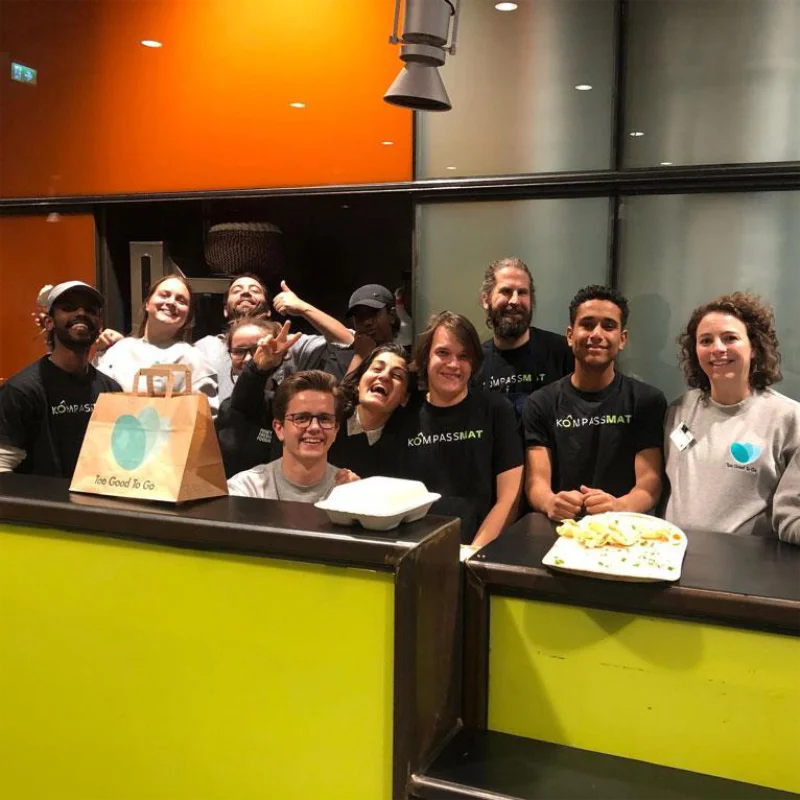
The efforts through 10 years “Kompass & Co” has clearly demonstrated an example of practical solution towards complex and wicked societal problems like unemployment, school drop-out, exclusion intertwined with environmental problems. Having said that, “Kompass & Co” emphasizes that their activity as a social entrepreneur is a supplement to and, not a substitute for, public services.
It has been a struggle to raise money. The economy is mostly financed from short term project money and selling of services. The projects that “Kompass & Co” are running have higher costs since they deal with several aspects in the life conditions of the youth. In addition to being employers, they focus on mental health, follow-up with regard to housing and schooling as well as family and home conditions. Together with other similar social enterprises in Norway they have suggested to national and local authorities the importance of a funding system that gives a basic support.
The activity has primarily been in Oslo, but the plans for the future include that the “Kompass & Co”-concept can spread to other parts of the country and inspire other regions and countries in Europe, like Slovakia and the Gemer Region.
Questions for discussion
- How are CO2 emissions related to consumption in your region?
- What are the statistics in your region when it comes to unemployment and school-drop-outs?
- If you wanted to start a social enterprise similar to what ”Kompass & Co” did in your own context, who could you work together with, how does your network look like when it comes to partners. Where can you start?
Links and References
Meetings and interviews with Kompass & CO
https://kompassogco.no/nyheter/
https://www.nav.no/en/
UNs Food program: ”Why do we have to change our Food System?”
https://www.youtube.com/watch?
The 17 Global Sustainable Development Goals:
https://sdgs.un.org/goals
https://www.matprat.no/
Future in our Hands:
https://www.framtiden.no/
https://www.framtiden.no/medlemsblad/
https://cnytt.no/
https://cnytt.no/2021/01/29
https://online.hbs.edu/
https://fontene.no/
https://sageneavis.no/
https://www.dagsavisen.no/
https://www.aftenposten.no/
Strategy ”Green Roofs” Oslo Municipality:
https://www.oslo.kommune.no/

